“The Social Doctrine is not just a theory, but a way to live the faith in the world”
Press conference presenting the Festival of Social Doctrine
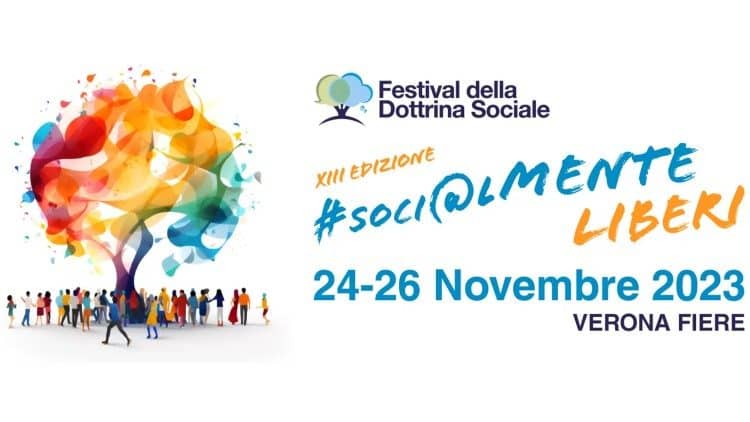
In his message to participants at the 13th Festival of the Social Doctrine of the Church, held in Verona, Italy, Pope Francis stressed the importance of the Social Doctrine of the Church as a means to build a more just and fraternal world.
The Pope said that the Social Doctrine of the Church is “a treasure of wisdom that helps us interpret the signs of the times and respond to the challenges of our time”. He stressed that the Social Doctrine is based on the fundamental principles of the Gospel, such as the dignity of the human person, universal fraternity and solidarity.
Pope Francis emphasised the need to apply the Social Doctrine to daily life. He said that “the Social Doctrine is not just a theory, but a way to live the faith in the world”.
We publish below the message that the Holy Father Francis sent to the participants in the 13th edition of the Festival of the Social Doctrine of the Church, taking place in Verona, from 24 to 26 November 2023, on the theme “#soci@lmente liberi” (#socially@free):
Message of the Holy Father
I warmly greet first and foremost the president of the Segni Nuovi Foundation, Alberto Stizzoli, who for some years, together with a substantial group of laypeople, the Scientific Committee and friends who provide concrete support to the initiative, is pursuing the important initiative of the Festival of the Social Doctrine of the Church.
I greet you all, professionals, businesspeople, teachers and committed laypeople, who are taking part in the thirteenth edition of the Festival of the Social Doctrine of the Church. I thank the organizers who, passionately and in silence, are advancing this initiative to translate the teachings of the Gospel in a concrete way in society. It is precisely you lay professionals who do not spare yourselves and represent one of the convergences expressed in the Synthesis Report of the First Session of the XVI Ordinary General Assembly of the Synod of Bishops (4-29 October 2023): “If the mission is a grace that engages the entire Church, the lay faithful contribute in a vital way to realizing it in all environments and in the most ordinary situations every day. It is they, above all, who make the Church present and proclaim the Gospel in the culture of the digital environment, which has such a strong impact throughout the world, in youth cultures, in the world of work, in economics and politics, in the arts and culture, in scientific research, in education and formation, in care for the common home, and in a special way, in participation in public life” (no. 8, d).
The theme you have chosen this year, “#soci@lmente liberi” (#soci@lly free), recalls some very topical issues, especially regarding the digital culture that influences relationships between people and, as a consequence, society. The symbol @ used in the word “socialmente” in the past indicated a unit of measurement and subsequently assumed accounting value, before arriving at its common use in electronic mail to mean “at”. From its history, therefore, comes an indication for living freedom in the social media today. It signifies the “at” that indicates closeness, proximity, contact, an intimate expression of freedom, to “keep” in one’s heart. The network we want is created “not to entrap, but to liberate, to protect a communion of people who are free. The Church herself is a network woven together by Eucharistic communion, where unity is based not on ‘likes’, but on the truth, on the ‘Amen’, by which each one clings to the Body of Christ, and welcomes others” (Message for the 53rd World Communications Day). In this tension and in this entrustment, personal and communitarian freedom are expressed. With regard to the speed of information, which provokes relational voracity, the ‘amen’ is a sort of provocation to go beyond cultural uniformity to give fullness to language, with respect for every person. Let no one be the promoter of a communication of rejection through the dissemination of messages of hatred and the distortion of reality on the web! Communication reaches its fullness in the total donation of self to the other person. In this relationship of reciprocity, the web of freedom develops.
You will recall the well-known account of the multiplication of the loaves and the fishes in the Gospel of Mark (Mk 6: 34-44). Often the focus remains on the fact itself: around five thousand men were able to feed themselves from what Jesus had made available to them. In reality, the evangelist is far more interested in the way in which Jesus feeds the crowd that had joined him on the banks of the Lake of Tiberias. “Jesus saw a great throng, and he had compassion on them, because they were like sheep without a shepherd; and he began to teach them many things” (Mk 6:34). First of all, Jesus teaches: the primary nourishment resides in the truth of whose history He is the narrator, of which He made Himself a living parable. Furthermore, the people do anything to be able to listen to Him, even travelling many kilometres on foot. Why? Mark lets it be understood that the throng perceives the peerless authoritativeness of the Master of Nazareth. This derives without doubt from what He says: often they are difficult teachings to assimilate, because they are very demanding. But, even more, His authority comes from His personal involvement and His being the face and word of the Father in the vagaries of human existence: He has compassion for the people, He has the same sentiments of the people in front of Him, He does not look down on them from above; He makes their problems His own, He takes care of them.
His communication is true because it is inspired by love for those who listen to Him at times even distractedly. Indeed, the teaching is followed by the gift of the bread and fellowship: Jesus is interested in the whole person, that is, the person in his or her entirety. Jesus, as is clear, is not a solitary leader. To reach every one of those who are gathered, He asks for the disciples’ collaboration. They too must enter into His logic of personal involvement. There is no Gospel gift that does not also include a little of the giver himself: “You give them something to eat” (Mk 6:37). This is the freedom to which the disciple is called: that of one who involves himself with intelligence and love to make the other grow.
Here, then, is the importance of being witnesses of freedom in a world of conflict. I wish all of you to be able to translate the hashtag of “soci@lmente” by intelligently promoting actions and initiatives for the common good. Get involved in education in the culture of giving. “We received life freely; we paid nothing for it. Consequently, all of us are able to give without expecting anything in return, to do good to others without demanding that they treat us well in return” (Fratelli tutti, 140).
May the Lord bless you! And please do not forget to pray for me!
Fraternally,
FRANCIS
______________________________________
Holy See Press Office Bulletin, 24 November 2023
Related
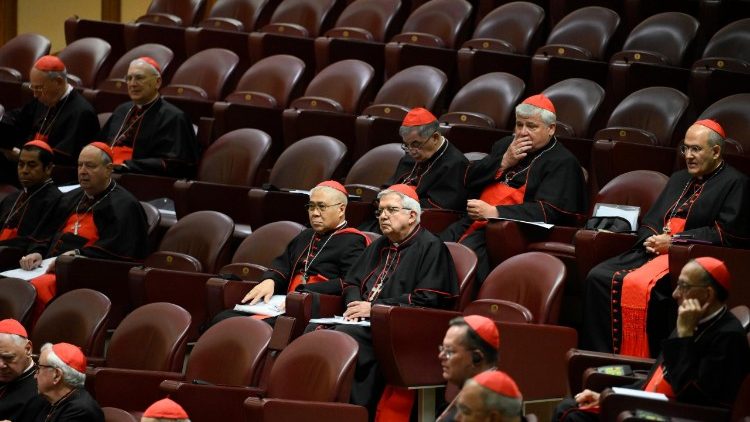
Cardinals Intensify Their Spiritual and Pastoral Preparation at the Third General Congregation
Exaudi Staff
24 April, 2025
1 min
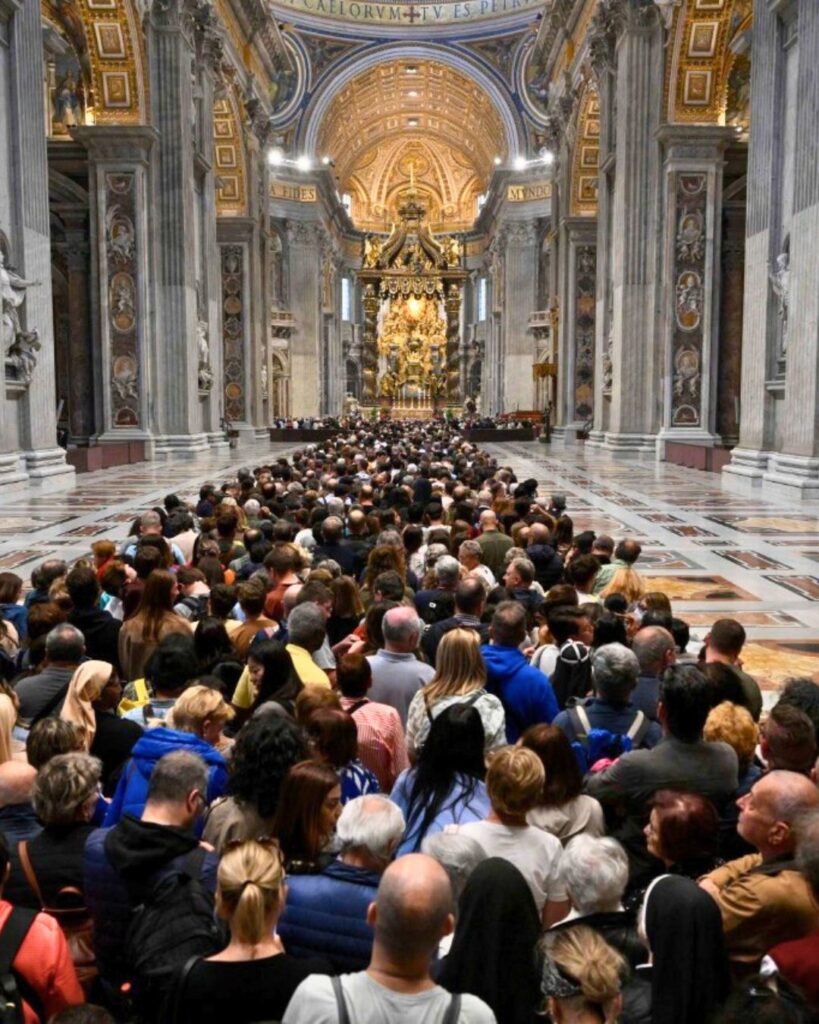
Rome unites in prayer: the world bids farewell to Pope Francis with love and gratitude
Exaudi Staff
24 April, 2025
2 min
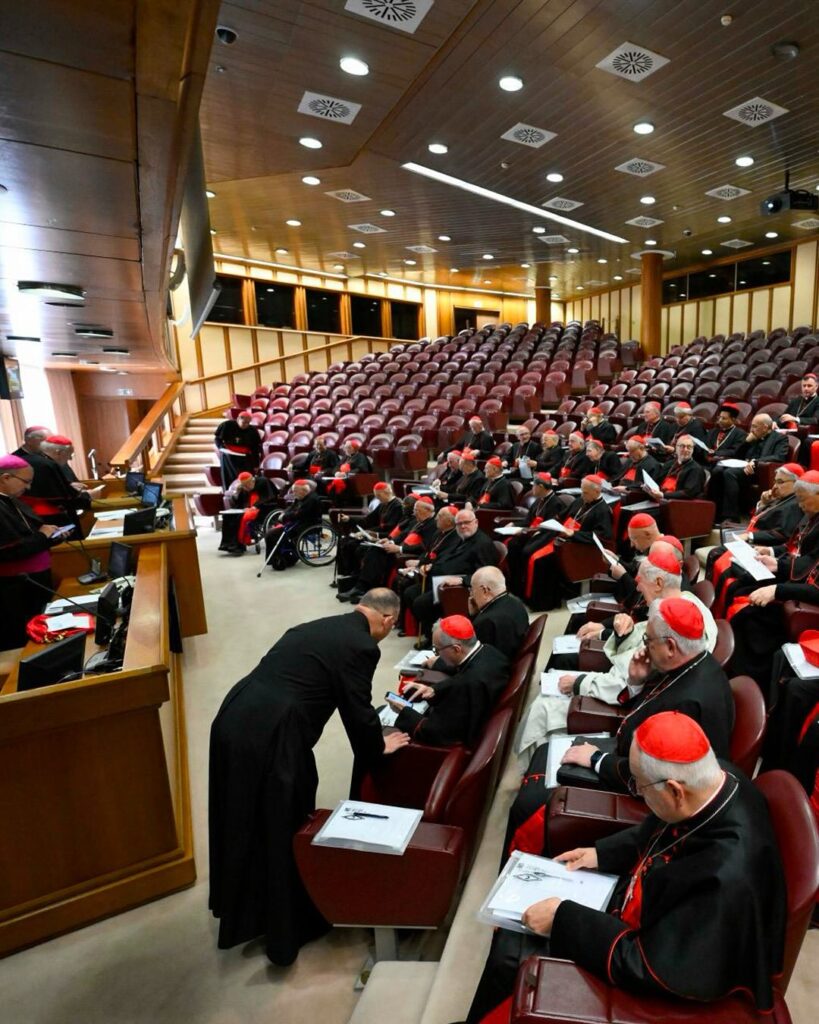
The first General Congregation of Cardinals was held in the Vatican
Exaudi Staff
23 April, 2025
2 min
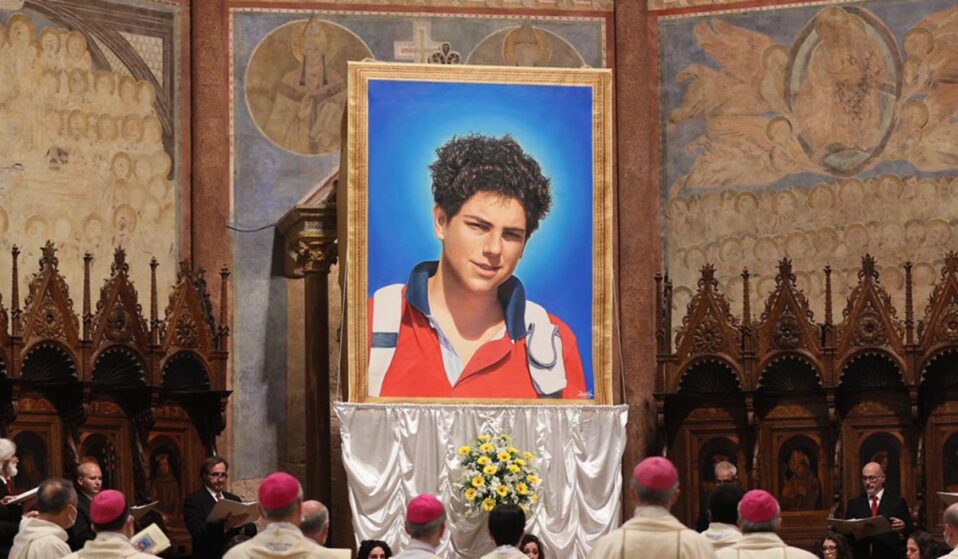
Holy See: Canonization of Carlo Acutis Postponed
Exaudi Staff
21 April, 2025
2 min
 (EN)
(EN)
 (ES)
(ES)
 (IT)
(IT)

